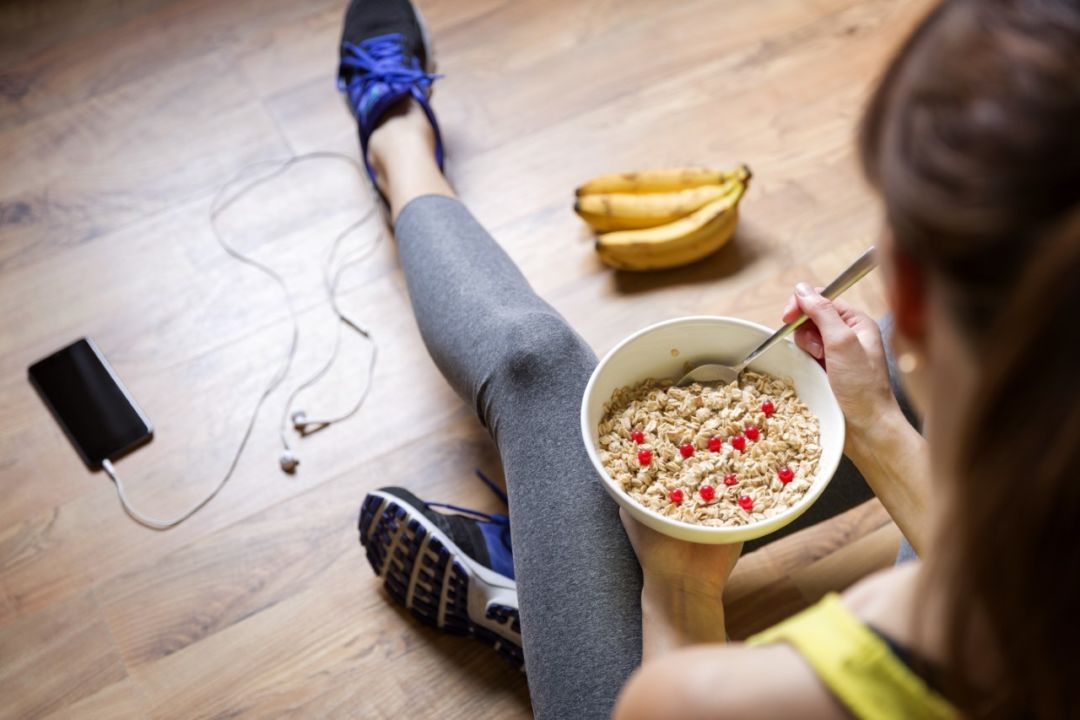How to Eat Breakfast Like a Champ

Image: SHUTTERSTOCK
When you're in the thick of your hectic morning routine, struggling to just get out the door with your pants on, breakfast might seem like an afterthought. Maybe you rush out with a coffee and banana in hand, or you might just skip breakfast entirely. And, as you've surely heard before, those habits set you up for a day of failure.
Maybe a little science will help you change your habits. Sports dietician Shawn Pitcher is an expert on healthy eating who works with young athletes at Bradenton's IMG Academy. He understands that not everyone has the time to make complex, homemade plates for every meal, and gave us some things to think about the next time we peer in the fridge.
Pitcher says that the key to making a healthy meal is developing a plate with layered nutrition. Each plate should ideally include a protein, a fruit or vegetable, a healthy fat and a carb:
Protein
Protein helps the body recover, whether from a workout or other physical stressors. Protein is also essential for healthy hair, skin and nails.
Fruits and Vegetables
Fruits and veggies have the fiber we need to keep our digestive systems in order and are full of crucial vitamins and minerals. Many also have high anti-inflammatory properties and antioxidants that reduce soreness. When it comes to selecting what you eat in a week, Pitcher encourages you to try to “eat the rainbow," since foods with different colors contain different antioxidants.
Healthy Fats
Fat isn't actually your enemy, if it is coming from a healthy and organic source. Healthy fats give you long-term energy and help you stay fuller longer. You can incorporate this into your diet by eating things like nut butters or nuts, avocados, egg yolks, fatty fish like salmon, olive oil and seeds like chia, flax or pumpkin.
Carbs
Every breakfast plate should include some type of carb. When we think of carbs, Pitcher wants us to think of fuel and energy. Skipping them will negatively impact your performance and mood.
Some specific examples of healthy breakfasts Pitcher gave us included an English muffin sandwich with eggs, ham, avocado and a side of fruit, or a stack of protein pancakes with sliced bananas and peanut butter. Breakfast can be prepped in advance and reheated quickly to help save you time in the morning, but taking the extra time to sit down and eat a well balanced meal is still the gold standard.
Starting off your day with a solid breakfast is a way to battle weight gain, because if you skip breakfast, you are more likely to experience cravings and then overeat later in the day. This is your body's way of "making up" for the missed meal, Pitcher says, but it ends up with you binging on lousy foods and consuming calories when you don't need them. Pitcher says this is a factor in the grim trend of rising obesity levels in the U.S., where nearly 40 percent of adults are obese and 14 percent of children ages 2-5 are obese. Obesity can lead to heart disease, diabetes, strokes, cancer and premature death.
Good nutrition doesn't stop with just food, either. "One of the best places to start improving your health is by keeping some sort of fluids wherever you spend the most time, like your desk, car or somewhere in your home," says Pitcher. "First off, find a vessel you like to drink out of. This will improve the chance that you will actually reach for it and drink it."
While it may sound gross, Pitcher says the best way to check your hydration level is by looking at the color of your urine. Dark yellow is bad; light yellow, or clear, is good. As Pitcher tells his athletes, "A 2 percent decrease in fluid can decrease performance by 10 percent." He also says that if you can't focus at work, are always sleepy or suffer from headaches, upping your water intake is a good place to start.
At IMG, experts like Pitcher hope to show athletes the best ways to fuel their bodies, but as Pitcher tells all of his athletes, "You drive your boat. I can teach you about what makes a good food or a good plate, but it's up to you to make the decisions."



